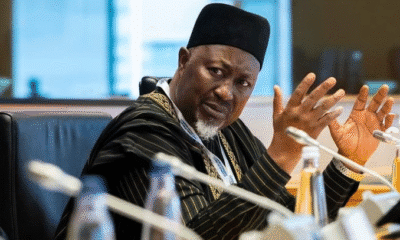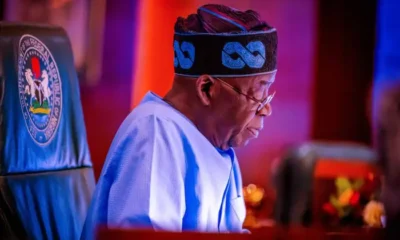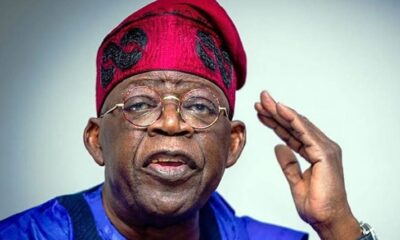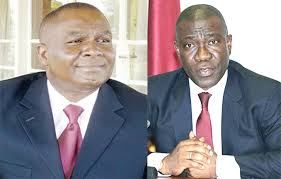Breaking News
Tinubu Speaks After US Strike Reports, Reaffirms Commitment to Security, Economy
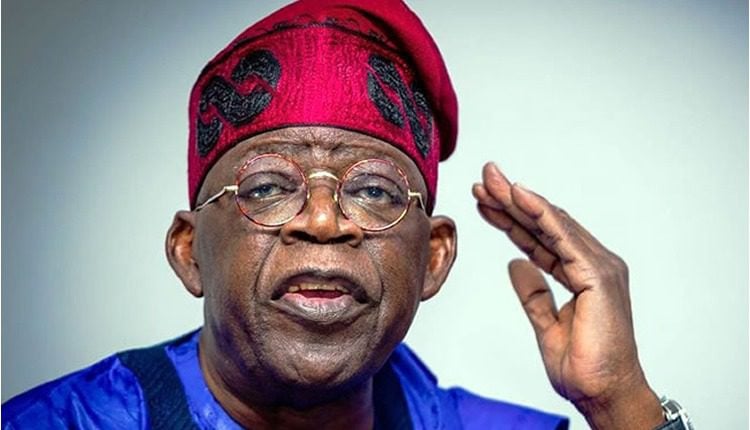
President Bola Tinubu has pledged that his administration will intensify global diplomatic engagement and strengthen the fight against terrorism and criminality across the country, even as international pressure mounts following recent threats by United States President Donald Trump.
Tinubu made the remarks shortly after the Minister of Finance and Coordinating Minister of the Economy, Wale Edun, presented an economic briefing during Thursday’s Federal Executive Council meeting.
Edun reported that the administration’s reform agenda was boosting investor confidence, attracting foreign interest, and delivering significant economic gains.
Reacting to the updates and the current security climate, the President said his government remains fully committed to delivering on the Renewed Hope Agenda despite mounting political and security challenges.
He said: “The task ahead is immense. But we are resolved to move forward with unity and purpose, to defeat terrorism and build a prosperous, inclusive, and resilient Nigeria.”
Tinubu acknowledged the scale of the challenges but insisted that Nigeria would overcome them through cooperation, stability, and continued engagement with global partners.
Trump’s Threats and Reports of Possible US Military Action
Tinubu’s remarks come in the wake of escalating tensions after US President Donald Trump threatened to send American forces into Nigeria if the government “continues to allow the killing of Christians.”
In a post on Truth Social last week, Trump issued a stern warning, saying: “If the Nigerian Government continues to allow the killing of Christians, the U.S.A. will immediately stop all aid and assistance to Nigeria, and may very well go into that now disgraced country, ‘guns-a-blazing,’ to completely wipe out the Islamic Terrorists who are committing these horrible atrocities.”
He further said: “I am hereby instructing our Department of War to prepare for possible action. If we attack, it will be fast, vicious, and sweet.”
Following the remarks, The New York Times reported that the United States military had begun drafting contingency plans for possible airstrikes in Nigeria. According to the publication, the US Africa Command submitted a set of operational options, labelled “heavy,” “medium,” and “light”, to the Pentagon in response to a directive from Defence Secretary Pete Hegseth.
US officials, however, suggested that America’s ability to end Nigeria’s decades-long insurgency remained limited without a full-scale military campaign similar to Iraq or Afghanistan.
Meanwhile, President Tinubu used the briefing to highlight growing international confidence in Nigeria’s economy, noting that the country’s recent Eurobond issuance was heavily oversubscribed.
He said: “Despite the political headwinds and fears, our partners have continued to engage with confidence.”
Edun, who recently recovered from an illness, thanked the President and cabinet members for their support and assured them that the reforms being implemented were aimed at building a more competitive, job-creating economy.
Finance Minister Highlights Economic Gains
The finance minister presented the latest economic data, noting that Nigeria’s GDP grew by 4.23% in Q2 2025, the strongest growth in a decade outside the post-COVID-19 rebound. Thirteen sectors recorded expansion of more than seven per cent, up from nine in the previous quarter, showing what he described as “broad-based resilience.”
He added that industrial sector growth nearly doubled, rising from 3.72% to 7.45%, driven by improved productivity and renewed investor interest.
Edun said inflation had fallen to 18% by December last year, while foreign reserves climbed above $43 billion. He also disclosed that the country posted a ₦7.4 trillion trade surplus, signalling stronger external buffers.
New consumer-spending data, he added, revealed that Nigerians now spend about half of their income on basic needs, down from nearly 90 per cent, suggesting a gradual shift toward improved living standards.
He celebrated Nigeria’s removal from the FATF grey list, saying global institutions such as the IMF and World Bank had upgraded Nigeria’s growth outlook in recognition of the ongoing reforms.
The minister also highlighted Tuesday’s €2.35 billion Eurobond issuance, which attracted over $13 billion in investor orders, describing it as evidence of global trust in Nigeria’s direction.
Edun stressed that Nigeria must mobilise more domestic and foreign investment to reach the administration’s ambition of a $1 trillion economy by 2030. He noted that economic growth must reach seven per cent annually by 2027 to meet that goal.
He said the next phase of reforms would focus on removing investment bottlenecks, reviewing tariffs and import restrictions, strengthening fiscal reporting, and optimising public assets.
Edun urged ministers overseeing infrastructure, health, education, agriculture, mining and the blue economy to work with state governments to identify investment-ready projects capable of attracting private capital on a large scale.
FEC Mourns Ewuga, Ex-Chief of Staff Abdullahi
During the council meeting, the Secretary to the Government of the Federation, Senator George Akume, announced the passing of former minister and senator Solomon Ewuga, describing him as “an accomplished leader dedicated to national development.”
Ewuga, who served as Deputy Governor of Nasarawa State in 1999, later became Minister of State for the Federal Capital Territory and represented Nasarawa North in the Senate. He died on September 23 in Egypt at age 70.
Akume also reported the death of former Chief of Staff General Mohammed Abdullahi, who served under President Olusegun Obasanjo and was once Military Governor of Benue-Plateau State as well as pioneer Director-General of the Nigerian Security Organisation (NSO).
Council members observed a minute’s silence in honour of the deceased.

